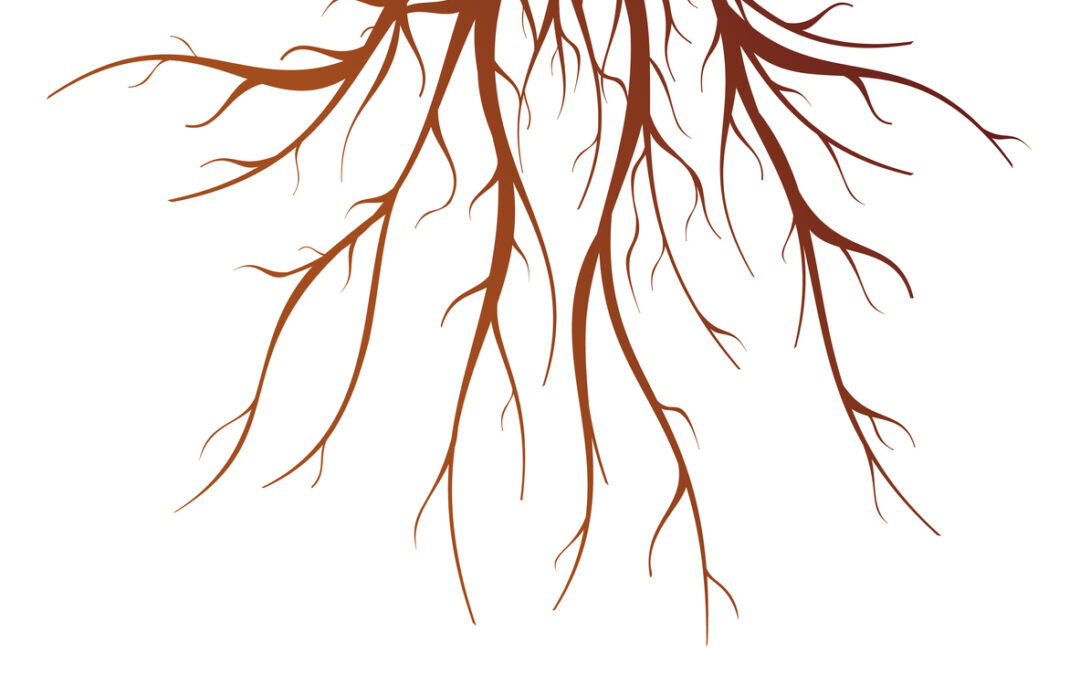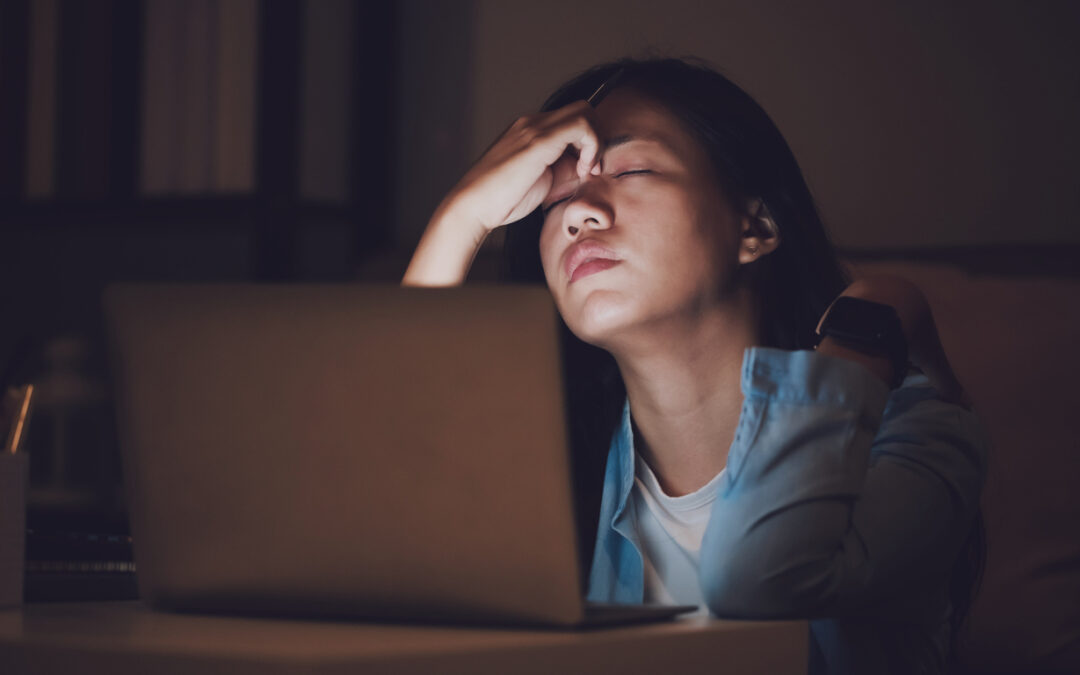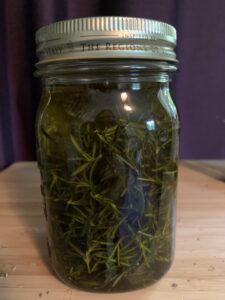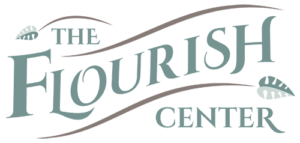
by Jen Owen, N.P. | Oct 14, 2020 | Mind-Body Medicine
A while back, I listened to a talk by Dr. Marisa Peer. She’s an author and therapist who works with international superstars, CEOs, royalty, and olympic athletes. Her technique is very simple. She helps people to realize that they are enough.
Isn’t that really what is holding most of us back? We worry that we are not enough. We think we are not enough as a spouse, daughter/son, mother/father, friend, etc. and we are not enough in our work. We are always striving to be more, be better, be perfect, or we just give up all together, because we are sure we’re never going to be enough.
We may have been told by others that we aren’t enough for a very long time.
But, what if we just accepted that we ARE enough? It’s very freeing, really.
Stop right now and put your hand over your heart and say to yourself, “I am enough”.
What feelings come up for you?
Do you immediately think of a role where you don’t feel like you are enough?
Maybe you couldn’t even say the words?
Dr. Peer recommends saying, “I am enough” multiple times each day. She suggests hanging a sign with these words on the mirror in your bathroom. She suggests saying them over and over again while you’re in the shower. You can also set phone alerts to go off throughout the day to remind you that you are enough.
When we repeat something over and over again (in our minds and out loud), the mind doesn’t have any other choice but to eventually accept it.
Dr. Peer says this about this technique, “In my 25 years as a therapist, I’ve discovered that the root of so many modern problems—hoarding, excessive drinking, compulsive shopping, and over-eating—come right back to a need to fill the inner emptiness of not feeling “enough” with external things. The more you tell yourself you are enough, the more you’ll believe it. It sounds so utterly simple—and it is—and all you need is the commitment to do it and the belief that it will work.”
When I think about the people I work with every day, I can honestly say that almost none of them think they are enough. Many are feeling inadequate in almost every role they play. In my experience, when we don’t fix the emotional roots to our physical symptoms, it is very difficult to have true healing. What if the process could fast track by just convincing ourselves that we are really enough?
To me it seems worth a try. So, I have a sign on my bathroom mirror and I have phone alerts set up to remind me all day that I really am enough. When my mind starts to place judgement on me for whatever reason, I snap my fingers and say, “I am enough”.
I joke with my friends and say that I retired from perfectionism. I really have, because deep down, I know….I am enough.
Please be sure to share this article with your friends and comment with your experiences below.
Did you know I have an online program where we do mindset work like this and much more? One of the program members just said this about her experience, “I wasn’t enjoying life for a very long time and now I’m handling things better than I ever have in my life. You’ve helped me calm my brain that’s overworked, overwhelmed, and overanalyzed”. Learn more here.

by Jen Owen, N.P. | Oct 14, 2020 | Integrative Medicine
One of the biggest challenges I’ve encountered since moving to Portland and starting a practice here has been one that I never would have expected. I’ve been shocked at how many people here don’t know what a Nurse Practitioner (NP) is.
In Indiana, this never came up, not once.
When I tell someone here that I’m a NP, there’s the (now familiar) blank stare. They don’t want to tell me they have no idea what I am and what I do, so they sort of nod awkwardly. I then ask, “Do you know what a Nurse Practitioner is?” and they admit to not really knowing.
Explaining what a Nurse Practitioner is and does is complicated.
Yes, we are licensed to make diagnoses, order labs and radiology testing, and prescribe medications. We can manage a patient’s overall care and serve in the role as primary care provider (PCP).
This might cause some people to compare us to medical doctors. While we do share similar licensing privileges, it’s not the best comparison.
Education
First, it undermines the level of education of medical doctors (MD)s. These professionals spend countless hours in education. They earn a 4-year undergraduate degree, followed by 4 years in medical school, followed by several years in residency, generally averaging around 12 years of advanced education.
Nurse Practitioners become Registered Nurses first and then go on to get a graduate degree as a Master of Science in Nursing. NPs usually spend 6-7 years in advanced education.
Approach
Next, there’s a difference in approach. MDs are taught to be scientists. They focus on lab and other test results and treat with a scientific approach in all that they do.
Nurses are groomed to be caregivers, treating not just the physical aspects, but also the emotional, mental, spiritual, and social parts of people’s lives.
Of course, nurses use science and critical thinking every day as well, but are more likely to look outside the box for an emotional or spiritual “root cause” of a symptom.
Evidenced-based practice is extremely important for NPs. It’s just not the only factor in our care.
At FLOURISH, I look at all causes of symptoms: physical, emotional, spiritual, financial, and social.
Specialization
Another other big difference between NPs and MDs is specialization. Many MDs become a specialist, such as a Gastroenterologist, Pulmonologist, Cardiologist, or surgeon. They receive rigorous training in the specialty area.
There are NPs who specialize also but with less and less MDs training in family practice or primary care, NPs are often filling the shortage as family practice and primary care providers.
So then, you might ask why would you want to see a NP over a MD?
Compassionate Care
First, as stated above, we are caregivers. We listen fully to our patients and we believe what they tell us. We trust that our patients know their bodies better than we do and we give them time to tell us what they know to be true about themselves.
We are trained in empathy and compassionate care. We know you’re not just a test result, but a complicated system and that many factors are affecting your level of wellness.
We’ve spent time at the bedside with the sickest of people, held the hands of terrified patients, comforted loved ones facing the worst moments of their lives, and cleaned up body fluids with deep respect for dignity.
We know what’s it like for our patients to lie in a hospital bed feeling helpless and hopeless in the middle of the night.
We get it, and we bring a personal touch to healthcare that’s often lacking in today’s systems.
My patients appreciate that I deeply care about them. They become like family to me.
Education
Next, we are teachers. We want you to completely understand what’s happening with you and we take the time to explain everything in detail. We focus on disease prevention, health education, and wellness counseling.
We see ourselves as a guide to help you navigate your path to feeling your best. We don’t see ourselves (or medications or surgery) as the solution.
We believe that each person has the innate power inside themselves to heal and we will support you fully to get where you want to go.
At FLOURISH, I take the time to explain every result and every treatment, so you know what you’re doing and why!
Determination
Last, and perhaps most important is that we have ruthless determination. We will go the extra mile for our patients every time.
We know that we will never know everything, so we spend our free time researching and educating ourselves to be the best we can be.
When we don’t know the answer for someone, we won’t stop until we find it, and we will fight for you.
We are a brave and stubborn group of people. If you want help, ask a NP and you will get it!
I’ve been called a “medical detective”. I love working with people who’ve been to see a bunch of different people and no one can figure out what’s wrong with them.
Sometimes MDs are frustrated that NPs are being compared to them and I respect this. I will be the first one to refer a patient to a MD if I feel their situation is out of my scope.
The other side of this is that I rarely need to refer. I can handle almost every situation that shows up in my office and because my care is thorough, holistic and compassionate, patients often prefer working with me over a MD.
I hope this helps to explain the differences between a MD and a NP a little better for you. I’d love to keep this discussion going.
What questions do you have about the role of a Nurse Practitioner?
Have you seen a NP? I’d love to hear your feedback about the care you received.
Please comment below and be sure to share this post with anyone else who might be feeling confused or with anyone who’s looking for a different healthcare experience.
And, if you know you’re ready for a Nurse Practitioner experience for yourself, learn more about FLOURISH here.

by Jen Owen, N.P. | Sep 30, 2020 | Mind-Body Medicine
My Dad was literally a jack of all trades. In fact, we used to tease that DAD stood for “Do-it-All-David”. One of his skills was electricity. When I was a little girl, I was on the other end of wiring more times than I want to remember. For those of you who don’t know, all those light switches are attached to wires that were guided through small holes in the walls and attic spaces of your house. It’s not an easy or particularly fun process. Sorry…I digress.
Anyway. When electricity is added to a house, the MOST important part is the GROUNDING wire. The purpose of a ground wire is to give excess electrical charges a safe place to go. In a properly grounded electrical system, that excess electricity goes directly into the ground. If home electricity is not properly grounded, the excess electricity can spark a fire or surge backward and harm your electronic devices and appliances.
You can think of your own body energy system in the same way. When you’re running around in your head all the time, you become ungrounded. you become reactive to what’s happening around you, rather than being able to roll with things. Sparks start to fly like anger, frustration, and annoyance. If you’re not grounded, there’s no place for those energies to go except up and out, or they stir inside of you causing you to feel exhausted and “burned out”.
Make sense?
Getting grounded isn’t hard to do.
Here’s how:
If you can be outside it’s even better, but anywhere will do.
- Stand or sit with your feet solidly on the ground (floor)
- Pretend you have roots like a giant tree coming out of your legs and feet
- See them large at the top and spindling smaller and going down deep into the ground
- Stand or sit and feel how it feels to be connected to the ground below you
- If you’re feeling any “sparks” at the moment, you can send them down those roots and ground them.
I recommend doing a grounding exercise every morning before you start your day and any time during the day when you’re feeling “off”.
Try it for a few days and let me know how it goes. Post your comments below and be sure to share this article. If the whole world was more grounded, I think things we feel a whole lot differently, don’t you?
Want to ground with me? Join my monthly Restore & Revitalize Women’s Circle every 2nd Saturday at The Flourish Center. Learn more and sign-up on our Events page.

by Jen Owen, N.P. | Sep 30, 2020 | Integrative Medicine, Mind-Body Medicine
Are you feeling strained and drained? Those are the best words I can find to describe what I sometimes feel myself, and also see in my patients.
We’ve had so much to deal with these past few years.
How are you coping? How are you keeping away the strain and drain?
There are three specific effects of strain and drain I often see: foggy thinking, trouble sleeping, and feeling tired. This makes a lot of sense.
Most of us are running around in fight-or-flight. If you don’t know what I’m talking about, start here. This causes elevations in the stress hormone cortisol. Short-term elevation of cortisol affects our sleep and our energy, and long-term elevation of cortisol can actually reduce the number of brain cells and/or stop new brain cells from being made.
The best way to handle this is to do everything we can to keep cortisol levels down. This can be done in several ways. You can do deep breathing and meditation. You can add an adaptogen herb as I discuss in this article. And, here are some specific tips for each of the three main areas of strain and drain.
The 3 Effects of Strain & Drain:
#1: Trouble Sleeping
As you can imagine, all the extra cortisol is affecting our sleep. My patients are describing fitful sleep and waking up for no reason and not being able to fall back asleep.
If this is you, too, it’s more important than ever to practice sleep hygiene. This means getting off of technology at least an hour before you want to be asleep, making sure your room is as dark as possible, maybe taking a warm bath or long shower before bed, and considering a nice cup of relaxing tea.
We have to allow the body time to let the cortisol levels reduce. If we go to bed when they’re still high, we won’t be able to fall asleep or stay asleep.
So, just like Peter Rabbit’s mother, why not try a nice warm cup of chamomile tea?
Science has yet to definitively prove that chamomile actually does something in the body that induces sleep, yet herbalists have been using the herb for centuries for this very purpose.
With very few side effects, it’s worth a try.
Add 1 T. dried flowers per cup of water, cover, and let it steep 20-30 minutes. Then strain and enjoy.

#2: Feeling Tired
If we’re feeling more stressed in general and not sleeping, it makes sense that we’d be feeling tired during the day.
One way to get more energy is through B-vitamins. B vitamins help you convert your food into energy. Without a proper amount, we can feel low in energy.
I always recommend more mindful eating of vitamins first and add a supplement only if needed. Foods high in B-vitamins include whole grains, nuts/seeds, dark green leafy greens, meat, poultry, seafood, and eggs.
If you need more support, you can visit a health food store like New Seasons and purchase a Vitamin B-Complex. Some people have genetic issues which make it difficult to properly assimilate B-vitamins, so taking large amounts could cause anxiousness. Be sure to come and see me or another expert for advice on which supplement would be best for you.
#3: Brain Fog
The last effect of these times I’m seeing frequently is brain fog. This can be helped with all the above, as well. Here’s another fun tip… rosemary.
Rosemary has gotten a decent amount of press for its effect on memory. Small studies have proven that when people smell the oil, they remember things better. Interesting.
What I find with rosemary is that is makes me think better in general. It’s like a mini mental stimulant. You can use the essential oil and smell it as you start to feel foggy or you can simply use the plant. It grows everywhere here in Portland. Simply cut a small sprig and keep it near you. When the brain fog hits, rub your fingers along the leaves and smell. It’s that simple.
Here’s some rosemary oil I have brewing right now. I’ll use it on food and to rub it on my skin on days when I need a little boost.



It’s often the simple things that seem to make a big difference. Slow down and stay in your body. Try not to let you mind run wild all the time. This doesn’t support healthy cortisol levels and can cause all the effects we’ve discussed.
I’d love to hear from you. How are you handling the strain and drain? Is there anything else I can do to support you?

by Jen Owen, N.P. | Sep 24, 2020 | Seasonal Health
I love fall. It’s the time when we get to start turning inward. I always find it interesting how that seems to just naturally happen.
It’s a great time for reflecting on the life you’re living and for asking if it’s feeling right to you.
Sometimes we have to make some hard choices about our lives that don’t necessarily align with those around us.
Do you eat what you eat because it’s what others in your family want to eat?
Do you drink alcohol because it’s how you share special time with your loved ones, but you don’t really want it?
Do you skip your exercise regimen in order to do what someone else wants to do?
Do you stay in a job because of “security” or because you “have to”?
How often do you do want YOU really want to do?
I know it’s even harder in times like these. If you have kids, you have kids ALL the time. If you drink alcohol, the culture says to drink more. If you had an exercise plan, it’s been disrupted.
You get the idea.
Now, more than ever, we need to get clear about what we really want, and then allow it for ourselves.
Take some time and ask yourself:
~Am I eating how I want to eat?
~Am I spending my time how I want to spend it (besides homeschooling—sorry Moms!)
~Am I prioritizing my care of my own body?
~And…what else?
It’s okay to want what we want. It’s okay to set some priorities and then stick with them.
What more is possible for you?
Will you let yourself make it known and let yourself have it?
I’d love to hear what comes up for you.
Post your comments below and if you’re feeling really stuck, come on in and let’s get a plan formed together! I’ll help you find what’s already there.
Need more fall health tips? Check out this blog, too!








Recent Comments